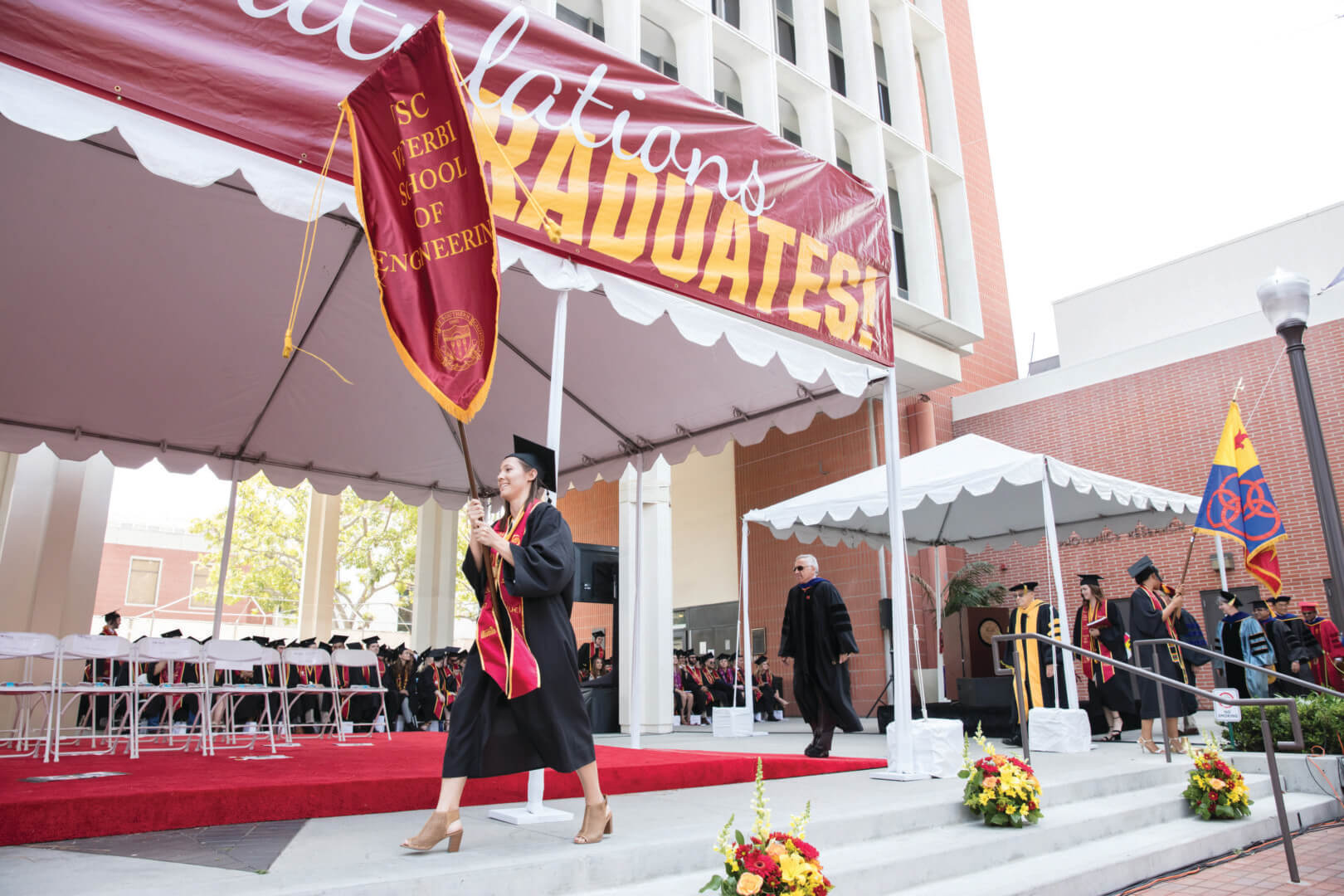USC Viterbi’s Entering Class is 44 % Female
Natalie Reck, 18, had her pick of engineering schools.
Boston University, Case Western Reserve University, the University of Maryland, North-
eastern University, the University of Colorado Boulder, Cal Poly San Luis Obispo, the Colorado School of Mines and USC all accepted her. She selected USC Viterbi.
The decision was easy. Given Reck’s interest in music and science, the concept of Engineering+ greatly appealed to her. The much-vaunted Trojan family, with its myriad of personal and professional connections, also excited Reck.
And then there are the women of Troy, specifically the 38 percent who make up USC Viterbi’s undergraduate engineering class, including her older sister, Caitlyn Reck, a 21-year-old senior.
“I have met an incredible number of female engineers here,” said Reck, who recently joined the local chapter of the Society of Women Engineers.
Even during orientation when we broke out into groups, the girls outnumbered the guys. All of us got so excited because there were so many of us and so many more than we were used to in high school.
USC Viterbi has made recruiting and retaining women and underrepresented minorities in engineering – Latinos, African-Americans and Native Americans – a top priority.
“We want to change the conversation about engineering,” said Dean Yannis C. Yortsos. “What engineering is, who we are and what engineers look like.”
Women make up 44 percent of this year’s entering class, a historic high for the school. Overall, female engineering students account for nearly 40 percent of the USC Viterbi undergraduate class, about double the national average of 18 to 20 percent, according to the American Society for Engineering Education (ASEE).
At the graduate level, more than 1,650 USC Viterbi students are women, more than any other engineering school in the country, according to a 2016 study by “U.S. News & World Report.”
Additionally, underrepresented minorities comprise 24 percent of USC Viterbi’s entering undergraduate class, while first-generation college students – the first in their families to attend a university – account for 13 percent,
a school record.
“If we’re not going to consider women engineers and underrepresented minority engineers, then we’re going to miss out on a talented population,” said Louise Yates, USC Viterbi’s senior associate dean for admission and student affairs.
Students also learn a lot by collaborating, designing and being in class with people who are different from them.
USC Viterbi’s progress toward greater gender diversity received a major boost in 2000, when an anonymous donor gave the university $20 million, which led to the creation of the Women in Science and Engineering (WiSE) program. Additionally, the Norris Foundation has supported the Viterbi Women in Engineering program since 2008.
Several factors have boosted USC Viterbi’s popularity among women and minorities.
Under Dean Yortsos’ leadership, the school has become an international leader in championing the Grand Challenges, the 14 most pressing global problems identified by the National Academy of Engineering – ranging from cleaner water to sustainable energy. By empha-
sizing the Grand Challenges, he said, “we attract a much more diverse set of students.”
In recent years, Yortsos has chaired the Diversity Committee of the Engineering Deans Council. He helped lead a diversity initiative across the nation signed by more than 210 deans. Last year, USC Viterbi established the office of Vice Dean for Diversity and Strategic Initiatives, now headed by Brandi Jones, to further increase the talent pipeline.
The ASEE recently awarded the school the 2017 ASEE President’s Award for its commitment to diversity.
USC Viterbi actively recruits the best and brightest women.
Every year, the school engages in a targeted recruitment campaign and sends thousands of brochures to prospective female applicants touting the school’s distinguished female faculty; student organizations, including Women in Computing; and career panels for female students.
“Our job is to make sure these students feel they have a community when they get here, a place to go, someone to talk to, and support services in place,” Yates said.




